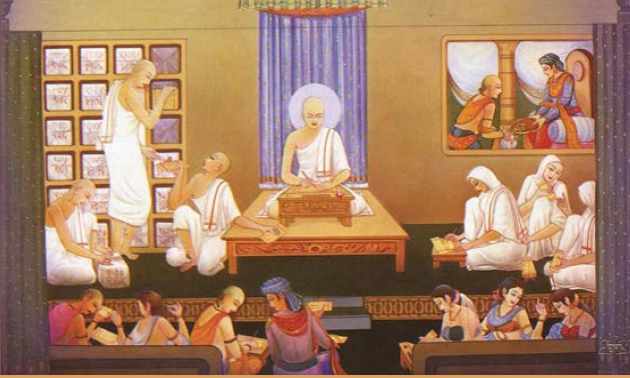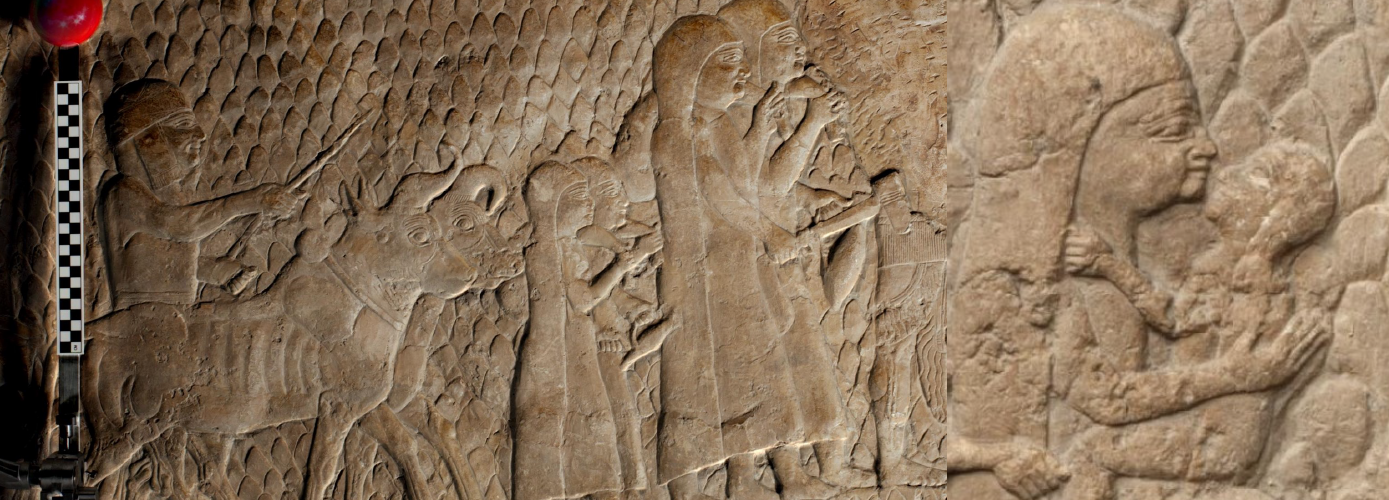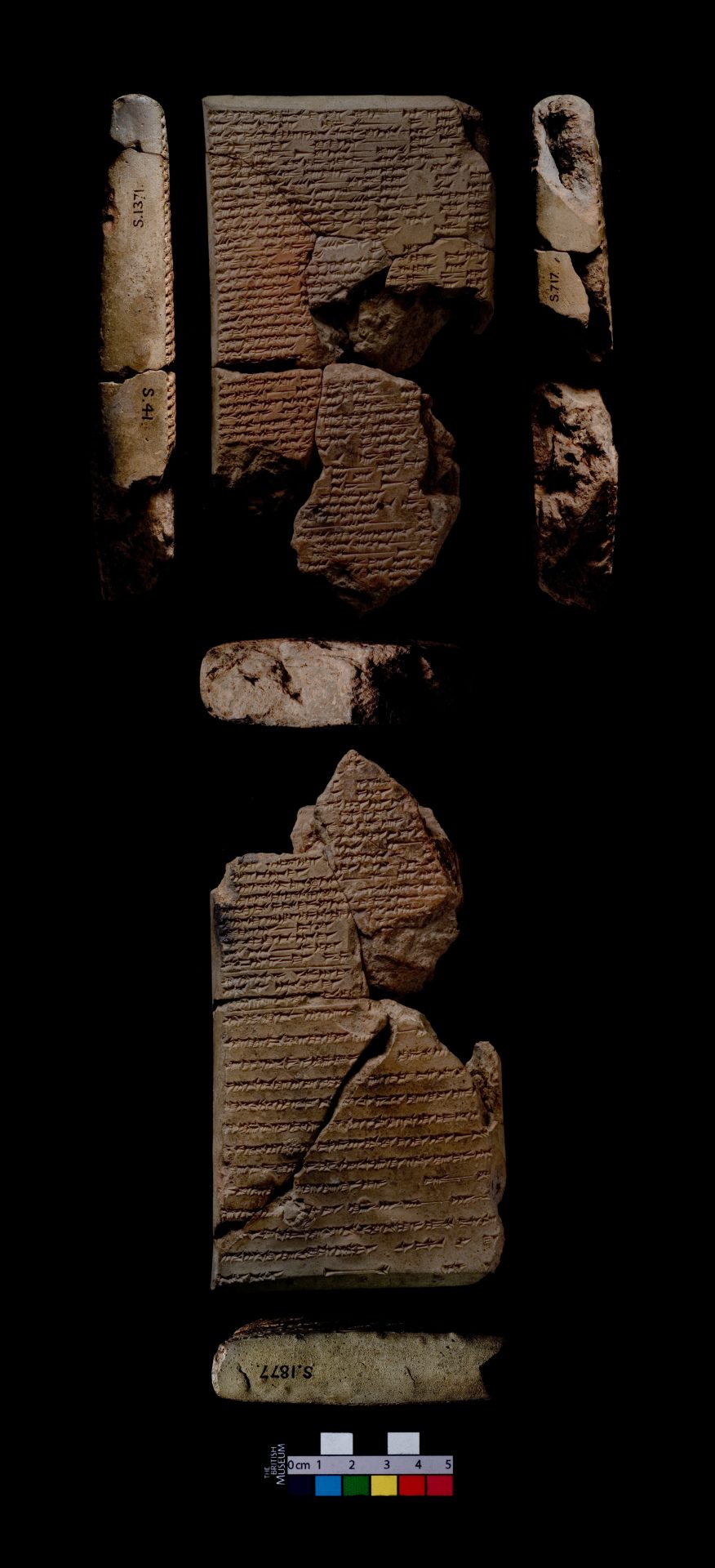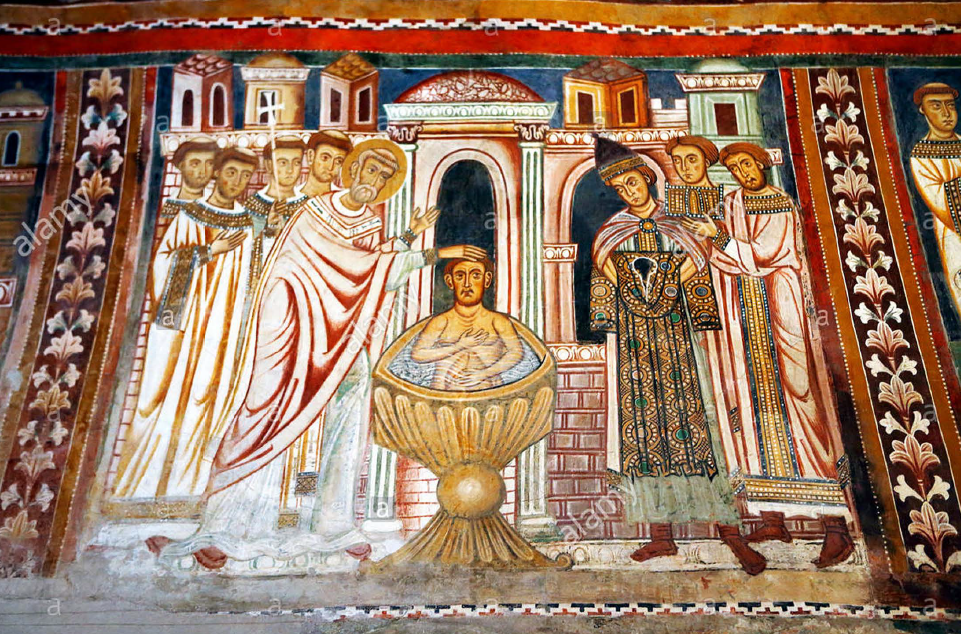Religious Freedom, Buddhist Liberation
ZoomCo-Sponsored by the UCLA Center for Buddhist Studies U.S. officials who occupied Japan after World War II claimed that the defeated country lacked religious freedom, but this tidy narrative masked a messy history. Japan’s 1889 constitution had guaranteed religious freedom, and over subsequent decades Japanese clerics had fiercely debated and vigorously defended the religious freedom...
Globalized Guru, Nationalized Icon: The Shrimad Rajchandra Mission and the Birth of “Globalized Jainism”
ZoomIn November 2017, the Shrimad Rajchandra Mission of Dharampur, Gujarat (SRMD) unveiled a 34-foot bronze statue of Srimad Rajacandra (1866-1901), a Jain layman and spiritual leader who is best known for his correspondence with a young Mahatma Gandhi. Over the previous decade, the SRMD's founder, Rakeshbhai Jhavery (b. 1966), has developed a sizable following, in...
Identity through Diversity: Classical Jain Philosophical Responses to Religious Difference
ZoomIn South Asia’s distinctive history of religious diversity, the Jains stand out as a perpetual but prominent minority especially attentive to the range of doctrinal options surrounding them. This talk will delineate some classical Jain philosophical efforts to conceptualize differences, navigate disagreements, and seek agreement with others as exemplified in the emblematic and transformative figure...
Acquiescing to Necropolitics? The Church and Same Sex Relations in Africa
ZoomIn this lecture I offer provisional perspectives on the question, acquiescing in necropolitics? In the first part of the lecture I highlight some of the debates on same sex relations in Cameroon. In the second part of the lecture I discuss the recent genealogy of necropolitics in Michele Foucault and Achille Mbembe. This will lead...
Dangerous Children: The Role of Children in Ancient Near Eastern Household Religion
Dr. Kristine Henriksen Garroway will present on the place of children in the household religions of the Ancient Near East. She will explore the delicate balance between a child's life and the forces out to destroy it. Topics addressed include dangers posed to a child in the womb, infancy, early years, and beyond and how...
Bodily Sacrifice for a Single True Verse: Implications of a Cluster of the Buddha’s Past-Life Stories
Online on ZoomAcross various Buddhist texts we find, again and again, a story of how the Buddha in a past life (as Bodhisattva) made a great sacrifice in exchange for a single verse of true teaching. Although we can interpret such stories as simply glorifications of Buddha or dharma, more interesting questions also arise, such as: How...
Fall 2021 Welcome Reception
Haines 39/ZoomYou are cordially invited to attend the Center for the Study of Religion Fall 2021 Welcome Reception. We look forward to seeing you there! Event Flyer RSVP Below:
To Appeal to the Judge of the Netherworld: the Role of Literary Figures in Mesopotamian Incantations
314 Royce HallMesopotamian incantations were, at their core, practical texts with specific purposes, whether that was the protection of a dwelling from future threats or driving out a malevolent demonic force afflicting an individual. Throughout the extensive corpus of such texts, found in languages such as Sumerian and Akkadian from the third to first millennium BCE, we...
The Constantinian Compromise: Senators, Bishops and the Emperor in Late Antique Rome
Given the historic role played by the victorious Constantine in spreading Christianity, it is ironic that senatorial aristocrats were more cooperative with Constantine than were the early fourth-century bishops of the city. Although the bishops of Rome and the clergy, along with other Christians, benefitted greatly from the restoration of their property and the recognition...
“Surely There is No Fear of God in This Place” – The Biblical Plagues and OUR Plague: An Anthropocentric “Theology” and a Lesson for Our Times
**Please note this talk has been postponed to Wednesday, December 1 at 12pm via Zoom** The onset of the coronavirus brought with it a slew of perverse efforts to identify the ‘sinful’ behaviors for which the plague was God’s punishment. Through an analysis of “Vehaya im Shamoa”(Deut.11:13-21) I offer an alternative understanding of...









